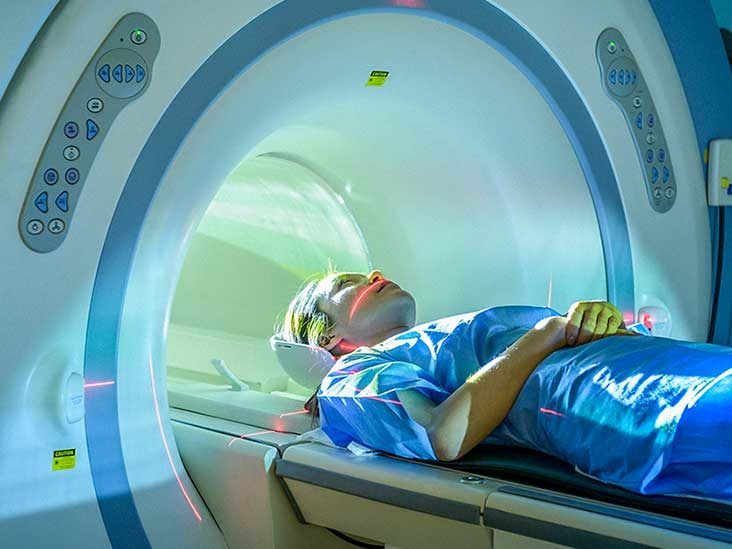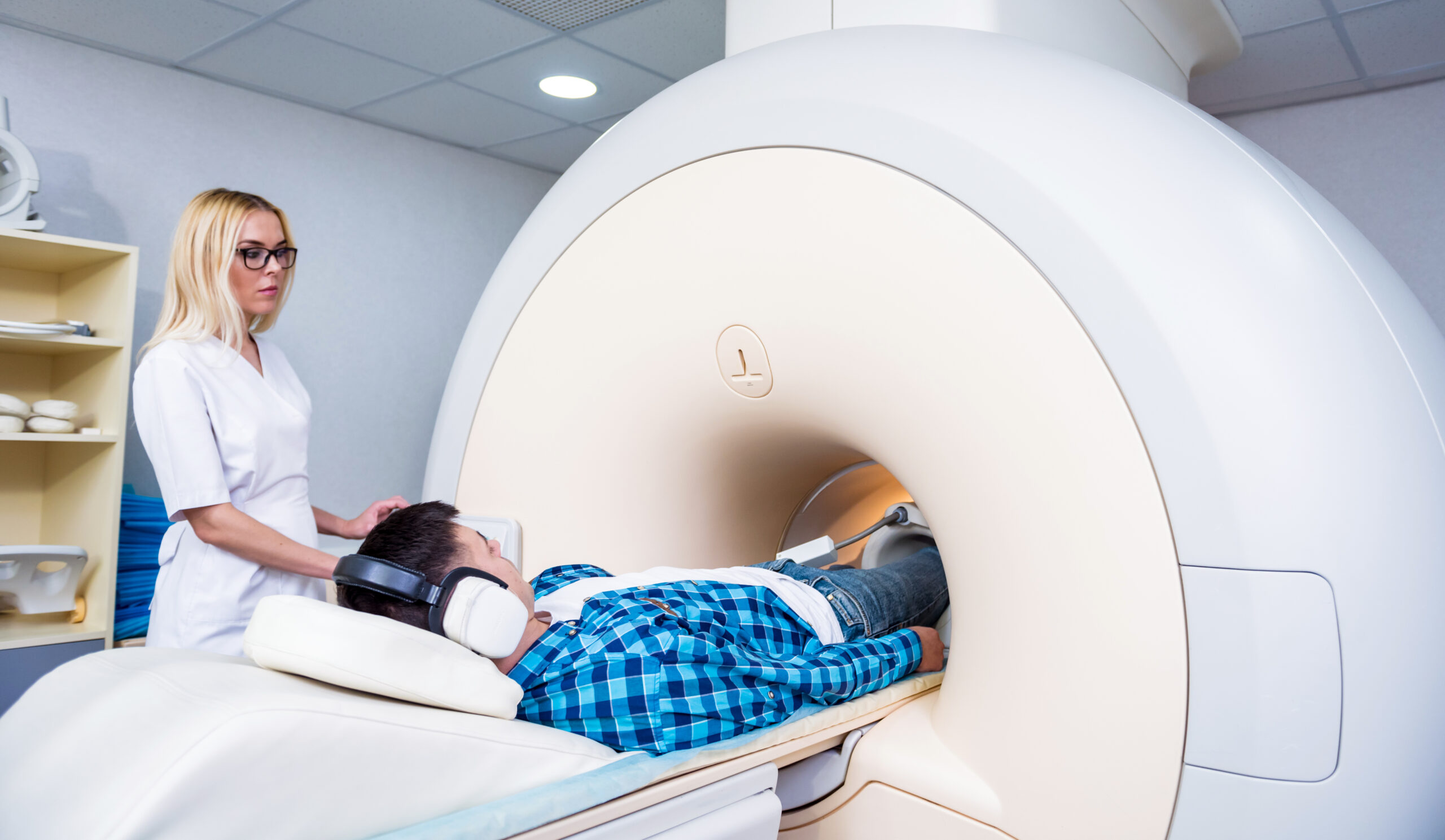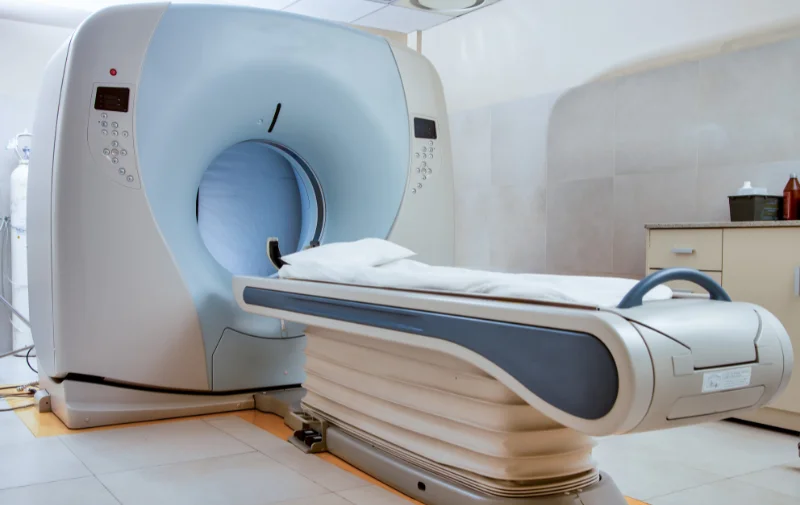When to Worry About MRI Results and When to Stay Calm

When to Worry About MRI Results? Medical advances have changed the healthcare environment, allowing us to use instruments like Magnetic Resonance Imaging (MRI) to see within the human body’s complexity.
While these images are important for diagnosing numerous medical issues, many individuals find it difficult to comprehend the data. “When should I worry about my MRI results?” is a frequently asked question.
It’s a valid worry that deserves precise, detailed responses. We will delve into the subtleties of MRI results in this blog post, assisting you in navigating this critical component of your healthcare journey.
By the end of this essay, you’ll have a better grasp of when you should be concerned about your MRI results and, more significantly, when you should keep your concerns to yourself.
Unraveling the Mysteries of MRI Results

Let’s go on a journey to decode MRI data so you may make informed health decisions.
Understanding MRI Basics:
Magnetic Resonance Imaging (MRI) is a powerful medical imaging technique that generates detailed images of the body’s internal components by using strong magnetic fields and radio waves.
These photos aid in the diagnosis of a wide range of medical diseases, ranging from soft tissue injuries to neurological disorders.
MRI findings often include detailed images as well as a radiologist report. Radiologists interpret these images, reporting findings to your healthcare practitioner and sharing them with you, the patient.
It is critical to understand that MRI results frequently cover a wide range of findings.
These findings can range from completely normal variances to benign anomalies and, in rare occasions, more serious concerns that necessitate additional research. Understanding the nature of these outcomes is critical for determining when to be worried.
When to Stay Calm:

- Normal Anatomy variances: MRI scans frequently indicate normal anatomical variances that may not have an influence on your health. Radiologists can tell the difference between these benign abnormalities and those that require medical treatment.
- Incidental Findings: MRI scans may occasionally find unrelated conditions that do not necessitate immediate intervention. These “incidental findings” may include tiny cysts, benign tumors, or modest tissue anomalies.
- Clinical Context: The clinical context is extremely important in interpreting MRI results. When combined with your medical history, symptoms, and other diagnostic testing, an abnormality on an MRI may not be cause for alarm.
- Routine Follow-Up: Radiologists may propose routine follow-up in certain circumstances to monitor a stable or small abnormality. This is a preventative step, not a cause for immediate concern.
- Maintain an open line of communication with your healthcare practitioner and radiologist. They can give perspective and reassurance about the importance of specific MRI findings.
Understanding that many MRI results are routine, benign, or unrelated to your current health concerns can help to reduce undue anxiety. However, there are some situations in which adopting preemptive measures in response to MRI findings is critical. Let’s look into those scenarios.
When to Seek Further Evaluation:

- Persistent or worsening symptoms: If you have persistent or worsening symptoms that prompted the MRI, it is critical to discuss any abnormalities in the data with your healthcare physician.
- Radiologist’s Concern: If the radiologist sees a troubling or possibly significant issue in the report, your healthcare practitioner will most likely urge additional testing or examination.
- Progressive alterations: If your MRI indicates progressive alterations when compared to earlier images, it could be an indication of an evolving disease that requires immediate attention.
- Specialist Referral: Based on the MRI findings, your healthcare physician may recommend you to a specialist. It is critical to follow through on these recommendations in order to acquire expert advice.
- Inconclusive data: In rare circumstances, MRI data may be inconclusive or raise questions that require additional research to reach a firm diagnosis.
- Patient Advocacy: Follow your instincts and speak up for your health. If you have questions about your MRI results, don’t be afraid to seek a second opinion or explanation from your doctor.
You may ensure that possible issues indicated in MRI results are swiftly addressed by taking proactive efforts and remaining engaged in your healthcare experience. This not only gives you peace of mind, but it also improves your general well-being.
Interpreting Specific MRI Findings:

Understanding the exact type of MRI findings can also help you determine whether you should be concerned:
- Structural variances: MRI findings may reveal structural variances that are common in your age or demographic group. These frequently do not necessitate any action.
- Minor Abnormalities: Minor, benign abnormalities such as cysts or lipomas are frequently innocuous and may simply necessitate monitoring.
- Chronic disorders: If you have a known chronic condition, such as osteoarthritis or a herniated disc, MRI findings relating to these disorders should be examined with your healthcare professional.
- New or Unexplained Findings: Abnormalities that are not consistent with your medical history should be investigated further, especially if they are associated with your symptoms.
- Clinical Correlation: The importance of clinical correlation is frequently emphasized in radiology reports. This means that your doctor will analyze the MRI results in light of your general health and symptoms.
FAQ About When to Worry About MRI Results?
Q1: Are MRI results always accurate?
A1: Although MRI is a highly accurate imaging method, the interpretation of data can vary depending on factors such as the radiologist’s competence and the equipment’s quality. MRI offers reliable information in most circumstances, however there may be some false positives or negatives.
Q2: Can I interpret my MRI results on my own?
A2: MRI results are complex and require expert interpretation. While you can read the report, it is critical that you discuss the findings with your healthcare provider or a specialist, who can provide context and advise based on your medical history and symptoms.
Q3: What if I have a pre-existing condition, and the MRI shows changes related to it?
A3: If the MRI reveals alterations related to a known pre-existing ailment, it’s critical to discuss the results with your doctor. They will determine whether the alterations necessitate revisions to your treatment strategy.
Q4: Can MRI results change over time?
A4: Yes, MRI results might vary over time, especially if your illness is progressing. Follow-up MRIs may be recommended on a regular basis to evaluate changes and adapt your treatment strategy as needed.
Q5: What if my MRI shows an “incidental finding”?
A5: Unexpected discoveries unrelated to the reason for the MRI are referred to as incidental findings. Your healthcare physician may urge further assessment or monitoring depending on the nature of the finding, although not all incidental findings necessitate immediate treatment.
Q6: Should I seek a second opinion if I’m concerned about my MRI results?
A6: If you are concerned about your MRI results, you should seek a second opinion. Another expert can review the findings and provide further information. If necessary, your healthcare professional should support your decision to seek a second opinion.
Q7: How can I prepare for an MRI to ensure accurate results?
A7: Follow your healthcare provider’s instructions for MRI preparation, which may include fasting before the scan or avoiding specific drugs. Make sure the MRI technologist is aware of any metal implants or previous procedures that could jeopardize the scan’s safety or accuracy.
Q8: Can I request a copy of my MRI images and report for my records?
A8: Yes, you can obtain a copy of your MRI images and report for personal use. Having these documents on hand can be useful for future reference or when seeking a second opinion.
Q9: Can MRI results diagnose all medical conditions?
A9: While MRI is a strong diagnostic tool, it may not detect all medical disorders, particularly those that are in their early stages. For a full assessment, your healthcare professional may employ a combination of imaging modalities and other diagnostic testing.
Q10: Are there risks associated with MRI scans?
A10: Because it does not involve ionizing radiation, MRI is widely regarded as safe. However, it is critical to notify the MRI technician if you have any metal implants, as these can pose safety issues during the scan. Additionally, some people may have claustrophobia or anxiety, which they should discuss with their healthcare physician prior to the MRI.
Conclusion:
MRI results are extremely valuable in the field of medical diagnostics, revealing insights into the complicated structures and functioning of our bodies.
While the phrase “MRI results” may cause fear, it’s important to understand that these findings frequently include a wide range of information, from normal changes to tiny deviations.
Knowing when to be concerned about MRI findings necessitates a balanced approach that takes into account clinical context, symptomatology, and the experience of healthcare practitioners and radiologists.
You may negotiate the complexities of MRI results with confidence if you maintain open communication, seek additional assessment when appropriate, and trust the advice of medical specialists.
Remember that knowledge is power, and understanding your health is the first step toward proactive healthcare management.





